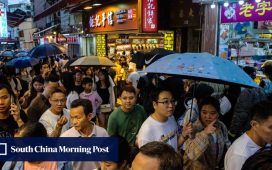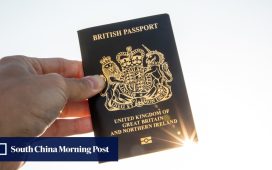SINGAPORE – Amendments to existing transport laws that will subject key Singapore companies to greater regulatory scrutiny will not have an adverse impact on the industry, said Transport Minister Chee Hong Tat.
This is because they will neither create significant compliance costs nor interfere with private commercial decisions and day-to-day operations, he told Parliament on May 8.
Allaying fears among lawmakers that the Transport Sector (Critical Firms) Bill could affect growth and innovation, Mr Chee said it sets the foundations for Singapore to guard against possible disruptions to a small number of companies that run key services here.
Questions had been raised over whether the Bill, which was passed by Parliament, would disadvantage foreign companies and discourage new investments.
Mr Chee said the Bill will prepare Singapore for extreme scenarios in the future, noting that it is not meant to address existing risks or current problems.
“For example, we cannot rule out the risk of malicious actors gaining control and adversely influencing our key transport entities, jeopardising the provision of essential transport services,” he added.
Four existing laws will be amended: the Bus Services Industry Act, the Rapid Transit Systems Act, the Civil Aviation Authority of Singapore Act, and the Maritime and Port Authority of Singapore Act.
With this, the respective transport authorities – the Land Transport Authority, Civil Aviation Authority of Singapore and Maritime and Port Authority of Singapore – will be able to classify key companies under their purview as designated entities and subject them to more stringent controls.
These firms could either be those that provide essential transport services directly in Singapore or those that hold an equity interest in a key transport company here.
The essential services covered include public bus and rail services, passenger and cargo air services at Changi Airport, as well as port and maritime services such as bunkering.
Mr Chee said only strategically important companies that provide services that are not readily replaceable – due to significant market share or specialised expertise, for example – will be designated.
Companies that will be designated as key transport entities would already have been engaged by the relevant authorities.
The legal amendments are set to take effect in the second half of 2024, with the initial list of designated entities to be drawn up by the end of the year. This list will be reviewed from time to time.
Designated firms will be required to notify or seek approval from the relevant authority if there are major changes to their ownership or leadership.
The firms must also keep the authorities informed of events that could materially impair the provision of essential transport services, such as a lawsuit or an insolvency.
Mr Chee said many of these controls are not new, and already exist in existing laws or transport licencing conditions today.
“What this Bill seeks to do is to consolidate some of these existing controls under a common legislative framework, and extend it to other entities, including some non-licensees,” he added.













